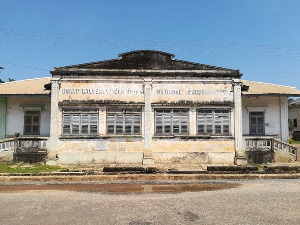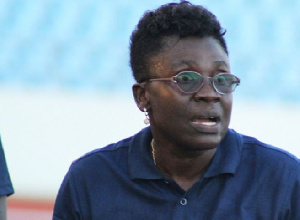Fish Farmers Plan Partnering Government
Ghana National Association of Fish Pond Farmers has expressed readiness to partner with government in its programs on Fish Farming for Food and Jobs (FFFJ ) to help harness the full potential of the fish farming industry.
Through this partnership, challenges that are thwarting the much anticipated progress of the business will be diminished and that government’s production target of 100,000 metric tons a year as against the current 38,000 metric tons will be achieved.
The Association according to the national chairman Mr. Jacob Ainoo-Ansah is ready to enter into discussions with government on the identification of market opportunities to guide production models.
He opined that if fish farmers are to produce for schools and other institutions, there will be agreements on sizes or weights of fish to be produced and at what prices and that should win-win situation be achieved between producer and buyer, the driving force for increased production will be largely enhanced.
According to a press statement copied to fox online newspaper, Mr. Jacob Ainoo-Ansah called for an urgent need for corresponding strategies, mechanisms and investment for absorbing what is produced considering the increased volume of production of farmed fish targeted, otherwise the current situation on profitability will be eroded when supply exceeds demand.
Touching on the challenge emanating from fish feed prices, he briefed that “Fish feed prices constitute about 70% and more of production cost in intensive fish farming practices. Prices of imported feed and those produced locally are unstable thereby upsetting frequently the plans of fish farmers. For the small scale fish farmer there are also challenges of availability and economies of scale. The sources of feed are distant from the locations of the fish farmer and when they access it, they are unable to purchase volumes. The result is increased cost in transportation and increase in their overall production cost. Local Fish farmers therefore cannot be competitive”.
Premised on the foregoing, the National Chairman suggested that government should partner the association to set up mini mills to produce fish feed in some selected production zones. This according to him can be in the form of support from government towards hire purchase arrangements for individuals or groups.
He further brought to light that the industry can achieve competitiveness locally and globally if fish farmers are given the state of the arts skills and practices in production. “There should be models of production for various species of fish(tilapia and catfish). There should be tested and recommended practices. These point to collaboration with knowledge institutions such as our universities and research institutes” he noted.
Mr. Jacob Ainoo-Ansah made an appeal to government through MOFAD to provide the required logistics and training to public extension service providers to reach farmers and again called on MOFAD to strongly consider training of private extension service providers to complement the efforts of the government personnel. “This will greatly reduce the cost of extension service and take skills to farmers in all corners of the country” he requested.
Source: www.thepressradio.com / Enock Akonnor, Kumasi-Ghana





